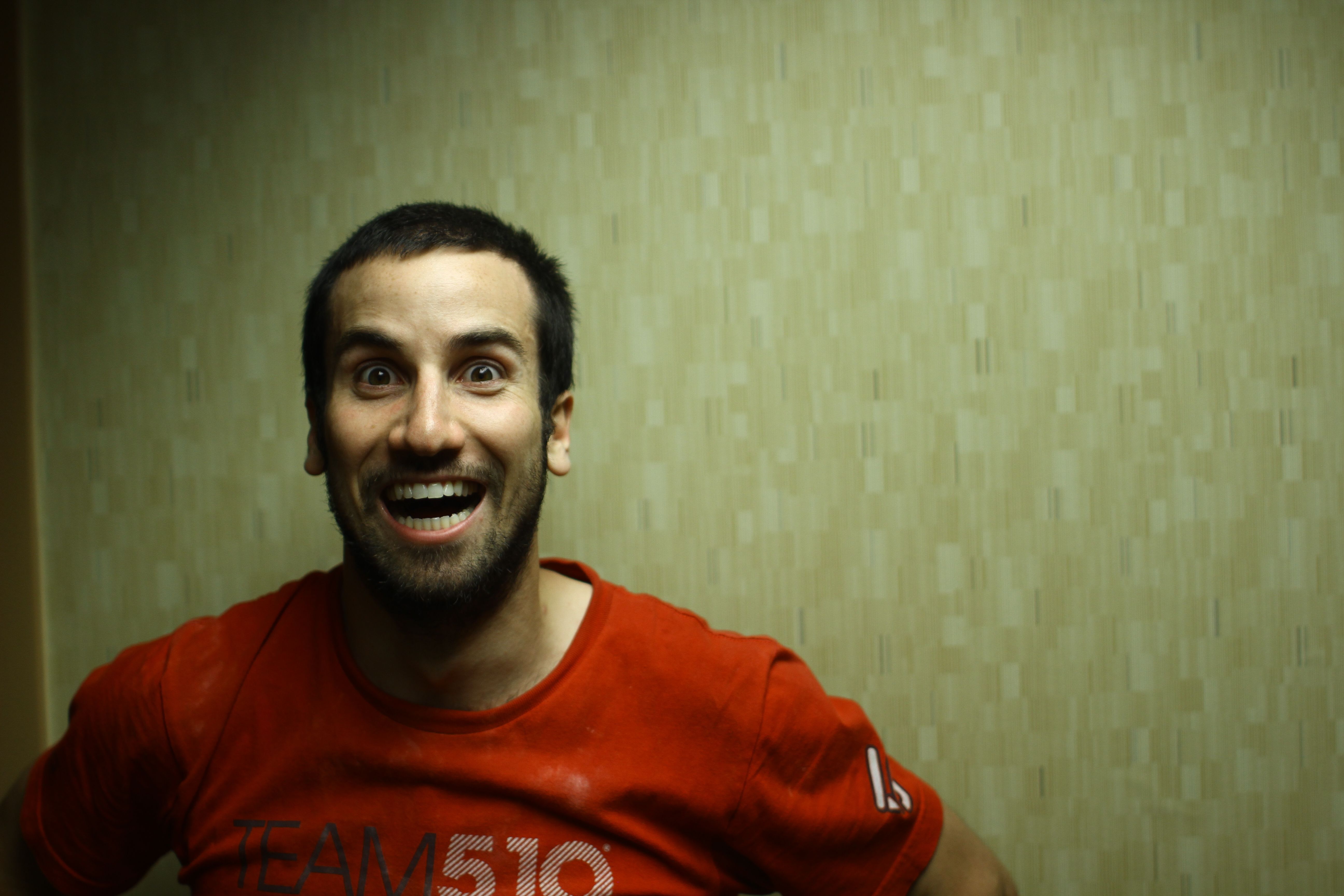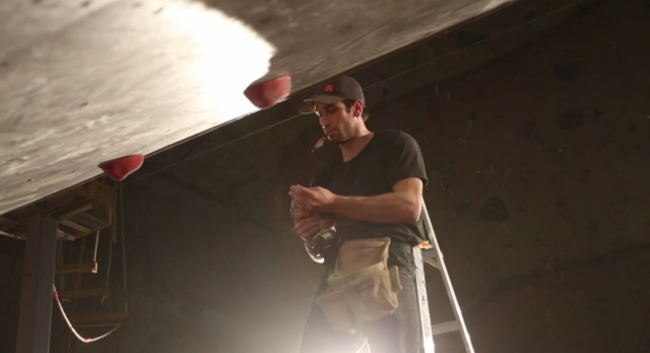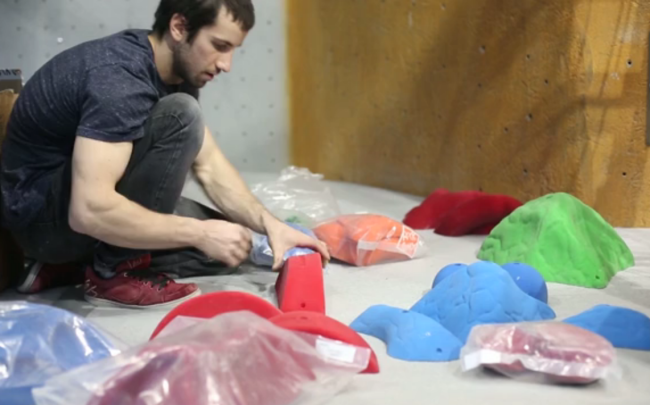
Dave Wetmore is the real deal. After routesetting for 14 years, creating and operating the best unsanctioned competition series in the country and sending V14 (Big Worm), he has now signed on to be MetroRock‘s full-time Head Routesetter.
MetroRock is a venerable climbing gym with two locations in the Boston area and a third opening in Burlington, Vermont in the spring of 2015. Setting for such a company is a milestone for any setter, but 27 year old Wetmore is no ordinary routesetter. He knows how to let’er rip and get things done.
He, along with fellow MetroRock routesetter Josh Larson created the Dark Horse bouldering series which is known for its flashy and uber-creative boulder problems and has quickly become a stop for any pro climber trying to make his or her mark on the comp scene.
Wetmore also took it upon himself to become a USA Climbing Level 4 National Routesetter. He now regularly sets for SCS Youth National Championships and has set for the Outdoor Retailer tradeshow comps.
The Climbing Business Journal sat down with Wetmore to find out whats next for MetroRock’s newest Head Routesetter.
You left routesetting for awhile and traveled to Colorado to climb. How did that trip factor into you becoming the head setter?
Well, living like a haggard wolf-beast for a full year, throughout Colorado, the Southeast, and New Hampshire, put things in perspective for me. I am not strong enough or good enough to be a professional climber (a climber that gets paid enough to make a living solely through climbing). And while I managed to climb many boulders at my limit and had a great time living that lifestyle, being lonely and on the road and poor all the time isn’t that cool — the end does not justify the means — at least for me. So, I decided I wanted to grow up and make a living. Maybe even buy a house and have a small pumpkin patch in the back with a golden retriever that would eat squirrels. What? Anyway, route setting has always been there for me and has provided the most creative and passionate outlet that I could ever want. Now it’s what I do full-time and probably will do for the rest of my life.
WHAT WILL BE YOUR BIGGEST CHALLENGE AS HEAD SETTER?
I’m a sensitive dude. I have tender feelings! People are not always going to want to do things the way I want to do things, so I’m going to have to try and find a balance between being the boss and allowing other setters to do their thing without me being a grumpy, little baby about it. Basically, learning how to work with all different personalities during the tweaking process is something I think I could spend the rest of my career improving on. More importantly, we have about 10 paid setters now between the North and South gyms. Organizing their time in the most efficient way possible in order to optimize our turnover rate is something I’ve never had to deal with because I’ve also just been screwing holds to the wall. I’m psyched for the new challenges.
WILL YOU BE SETTING AT ALL THE METROROCK LOCATIONS?
Yes. I, along with our solid crew, put up and take down many holds in the course of a work week. When our third gym comes online in Burlington, Vermont, I’ll make the 3-hour drive up north once a month and stay for a week to set whatever needs to get set.
WHAT IS YOUR WORK LOAD? ARE YOU ONLY SETTING OR COACHING TOO?
I don’t coach anymore at all due to time constraints and because my heart just isn’t in coaching anymore—it’s fully in setting. Work load consists of setting, managing and organizing setting teams, coordinating our competition and event schedule, keeping our hold selection and budget updated, wall maintenance, and anything else that falls under the big picture of overall gym improvement. At the end of the day, my main goal is to help our team set the very best routes and boulders that we possibly can by collaborating, supporting, and instructing on a daily basis.
WILL YOU STILL BE ABLE TO SET FOR NATIONAL CHAMPIONSHIP EVENTS?
Absolutely. Professional growth and development is a huge priority for myself. Thankfully, MetroRock has always allowed me to pursue my goals within USA Climbing, and other major events, while maintaining my responsibilities at our gyms.
BOSTON IS QUICKLY BECOMING ONE OF THE MOST COMPETITIVE GYM MARKETS IN THE COUNTRY. HOW IS METROROCK RESPONDING TO THIS INCREASED PRESSURE?
We are not the flashiest, prettiest, or cutest gym on the market anymore. We have battle scars and wounds. Our walls have aged. But I believe our setting is among some of the best in the country and will continue to be as we develop honed setting teams across all gyms. Our setting will undoubtedly differentiate us from our competition for years to come. And as gyms evolve in design and layout, so too will ours as we construct and deconstruct the insides of our buildings.
HOW WILL YOU KEEP METROROCK’S WALLS FRESH AND INTERESTING FOR YOUR MEMBERS?
This is not easy. We have a very “old school” flavor to our gyms. Recently, we have re-paneled the entire inside of our biggest boulder in Everett and replaced all the T-nuts to make it easier for our setters to be creative. Outside of painting the walls a more welcoming and brighter color, we are in the process of constructing a 20-by-20 foot glass-paneled door/window that we can open and close. Air! Light! These kinds of improvements help us change our building from the old World War II tank construction bay that it once was and into a happier, brighter, and overall better space to climb. In addition, we are currently looking into manufacturing our own volumes for our gyms, so that we can create a large quantity for cheap, similar to what Tonde has already done at Seattle Bouldering Project. A volume, as you know, can completely transform any old angle.
HOW WILL BEING HEAD SETTER EFFECT THE DARK HORSE COMPETITIONS?
I think that as the Director of Setting for the MetroRock gyms, I’ll learn a lot about what it really means to manage. Although I’ve managed crews for the past 5 seasons of Dark Horse, I’m hoping that I can improve as a leader as I learn how to balance more responsibility. We have an amazing staff and team of setters. They make my job easy.
WHAT ADVICE WOULD YOU GIVE TO SOMEONE THAT WANTS TO TURN SETTING INTO A CAREER?
Try, try, and try again. I started out as a volunteer setter back in 2004 for MetroRock—that’s over a decade ago if my math is right. Eventually, I moved up from getting paid nothing to getting paid $25 per route. It’s crazy how far you can go in this industry if you’re willing to listen, be patient, and work hard because you love it. Luckily, as this industry grows due to the number of gyms popping up all over the country, gym owners will need more and more certified and legitimate route setters to maintain a standard of quality that the consumer will inevitably demand. This just means more opportunity for us. It’s a great thing.
IS METROROCK TAKING CARE OF YOU FINICALLY?
Yes. It’s taken me over a decade of grinding to reach a level of financial security (yearly salary, health insurance, paid vacation, etc), but I feel very well taken care of at this point and hope that other setters across the country can be given similar opportunities as our industry continues to grow and becomes more competitive each year.
HOW IMPORTANT WAS IT FOR YOU GET A LEVEL 4 USAC SETTING CERTIFICATION? DID THE GYM REQUIRE YOU TO HAVE IT?
Honestly, my gym didn’t even know such a certification existed until I got it. So, no, my gym didn’t require it. However, the knowledge, experience, and group work skills that I have gained over the years within USAC is certainly reflected in our work at MetroRock on a day-to-day basis regardless of whether or not a gym owner or boss deems it necessary to be certified.
DID YOU HAVE ANY MENTORS WHILE YOU WERE COMING UP AS A YOUNG SETTER? WHO HELPED YOU BECOME THE SETTER YOU ARE TODAY?
Jason Danforth and Pete Ward used to put on these crazy bouldering comps in New Jersey back in the day. Their style has greatly influenced mine. But people like Mike Helt, Chris Danielson, and Kynan Waggoner, have helped me develop into a professional. Working in big crews at USAC National events under dialed Chiefs, as well as their periodic clinics that are provided throughout the year, has significantly added to my base of setting and communication skills that I use on a day-to-day basis. You’ve got to repeatedly get knocked down to build yourself back up in a better way—just like how a crappy route or boulder grows into an undeniably solid series of moves after it gets destroyed and re-birthed. That’s how I’ve grown as a setter over the years.
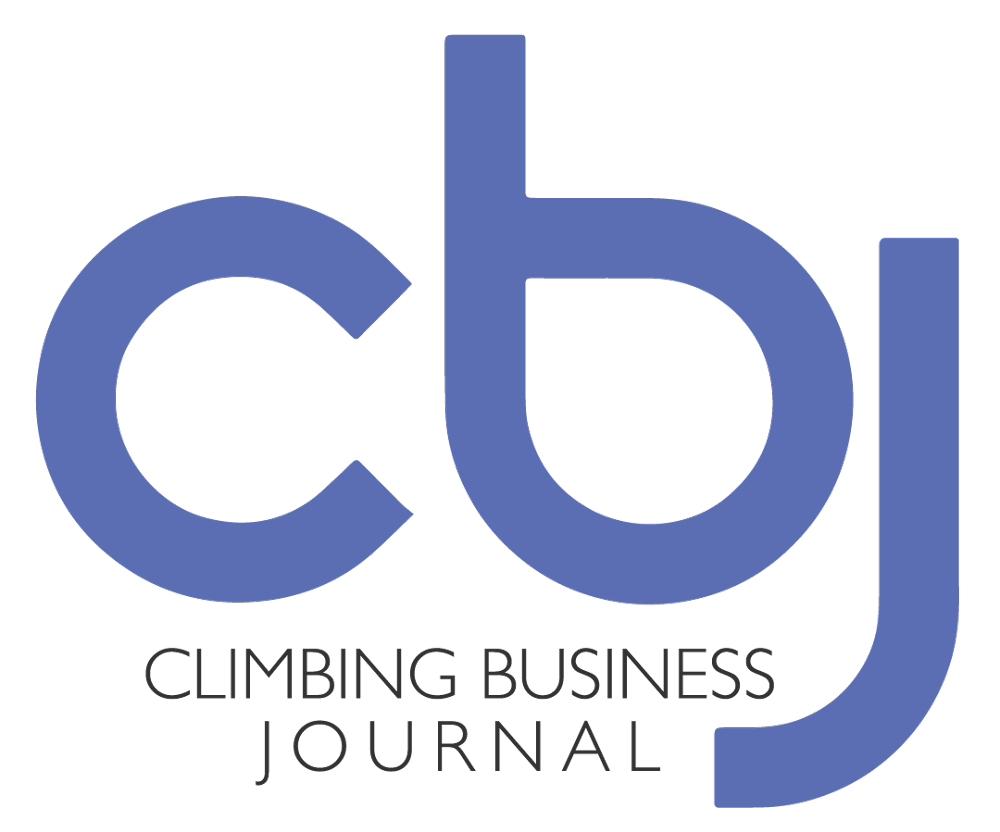
Climbing Business Journal is an independent news outlet dedicated to covering the indoor climbing industry. Here you will find the latest coverage of climbing industry news, gym developments, industry best practices, risk management, climbing competitions, youth coaching and routesetting. Have an article idea? CBJ loves to hear from readers like you!



